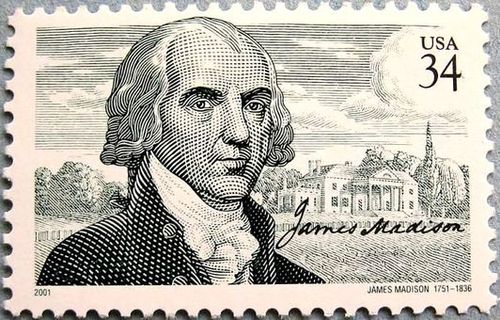
What Would James Madison Think?
Political Fighting Over Election Law is Something That Was Common in Madison’s Time | Democracy, elections, and voting at DC
A fascinating guest post on Rick Hasen’s Election Law Blog by Ned Foley looks at the recent move by Florida’s State Government to exlude thousands of voters from the election registration lists. Foley, takes an interesting angle on the story, asking the question: Would Madison have approved? Take a look at this excerpt:
Thus, Madison saw the challenge of successful constitutional design for a democracy as economizing upon an existent but finite supply of virtue among otherwise self-interested politicians. To this end, he gave us the architectural principles of federalism and separation of powers. “Ambition must be made to counteract ambition”—so that no single institution of government, even in a democracy, can exercise too much power over the lives of the citizenry.
Yet, as I read recent news reports of efforts in Florida to purge the state’s voter rolls of non-citizens, I wonder if Madison’s principles of constitutional design are adequate to the task of election administration in the twenty-first century. Or perhaps the better question is whether the current institutional arrangements we use in the United States for election administration are adequately in accord with Madison’s fundamental principles of constitutional design.
Foley concludes that Madison’s philosophy is useful in building a concept of democracy but ultimately needs to be revised and updated to be effective today. Issues such as count accuracy, ballot access and universal suffrage are more important for modern democracy activists than for our founding fathers. After all, the founders were participating in a wholly untested experiment in governance. 230 years after the world began its first elections, much has changed in the number and variety of democratic systems in the world. See the Freedom House map under this article for an idea of the spread of democracy around the world. Madison surely would have been impressed. Foley concludes:
If Madison and his fellow Founders couldn’t figure out how to create a proper electoral process for the presidency in their own time, then surely we can accept the fact that Madisonianism hasn’t given us adequate institutions for the demands of operating the voting process for presidential elections today.
The full article can be found here.
Edward B. Foley is an Isadore and Ida Topper Professor of Law at Ohio State University and Director of Election Law @ Moritz. One of the nation’s preeminent experts on election law, Professor Foley teaches and writes in all areas of this field. His current research focuses on improving the processes for resolving disputed elections, and he has been asked to lead a new American Law Institute project on election law.
Leave a Reply